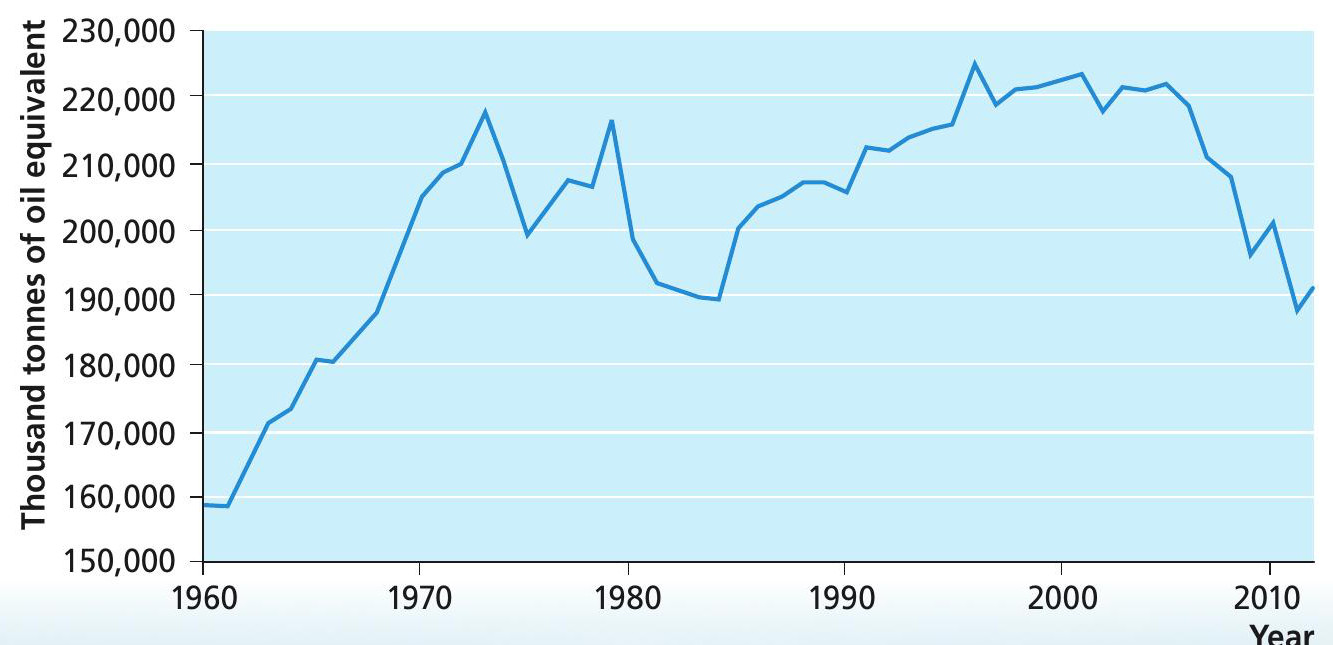
The classical economists listed land, labour, capital and enterprise as the four basic factors of production. For a modern economy, however, it is arguable that energy is equally important as an input into production. This has been the case since the Industrial Revolution when the application of steam-powered technology marked one of the decisive breaks with the older agricultural economy. Since then the methods of power generation have changed but the need for energy input has remained. Even the traditionally more labour-intensive service sector has come to rely increasingly on technologies which require a reliable energy supply for their operation.
In this article we will look at the way in which the demand for energy has changed in the UK economy during the last 50 years. We will see that, while the demand for energy has certainly increased, the growth has been rather less than would be expected given the growth in aggregate output. Possible explanations for this are as follows:
Your organisation does not have access to this article.
Sign up today to give your students the edge they need to achieve their best grades with subject expertise
Subscribe




